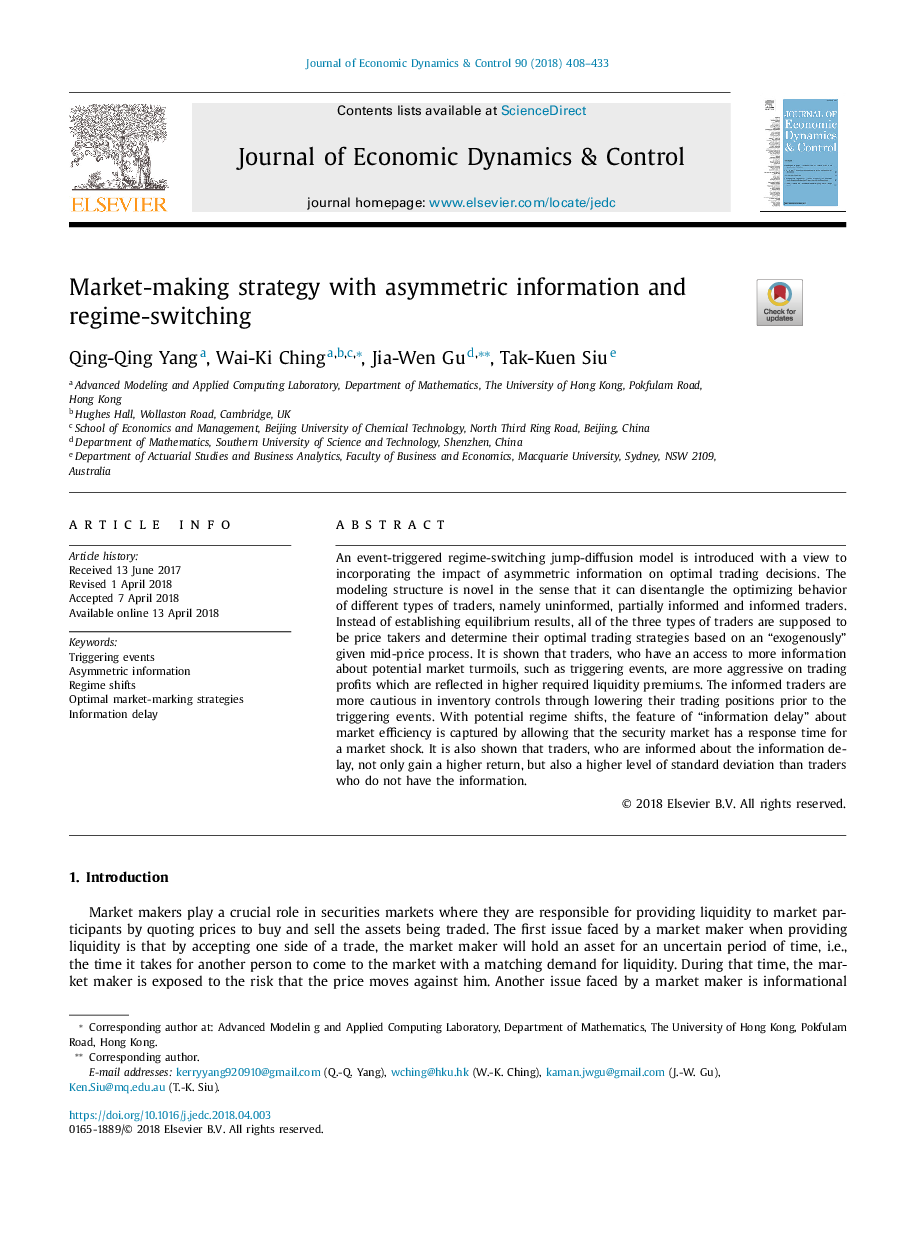| Article ID | Journal | Published Year | Pages | File Type |
|---|---|---|---|---|
| 7358749 | Journal of Economic Dynamics and Control | 2018 | 26 Pages |
Abstract
An event-triggered regime-switching jump-diffusion model is introduced with a view to incorporating the impact of asymmetric information on optimal trading decisions. The modeling structure is novel in the sense that it can disentangle the optimizing behavior of different types of traders, namely uninformed, partially informed and informed traders. Instead of establishing equilibrium results, all of the three types of traders are supposed to be price takers and determine their optimal trading strategies based on an “exogenously” given mid-price process. It is shown that traders, who have an access to more information about potential market turmoils, such as triggering events, are more aggressive on trading profits which are reflected in higher required liquidity premiums. The informed traders are more cautious in inventory controls through lowering their trading positions prior to the triggering events. With potential regime shifts, the feature of “information delay” about market efficiency is captured by allowing that the security market has a response time for a market shock. It is also shown that traders, who are informed about the information delay, not only gain a higher return, but also a higher level of standard deviation than traders who do not have the information.
Related Topics
Physical Sciences and Engineering
Mathematics
Control and Optimization
Authors
Qing-Qing Yang, Wai-Ki Ching, Jia-Wen Gu, Tak-Kuen Siu,
